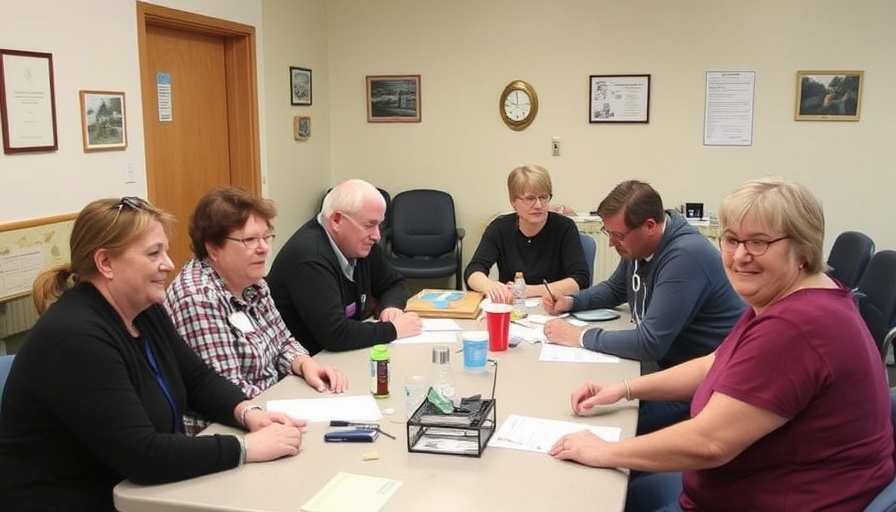
Discovering Yahara House: Madison’s Hidden Gem for Mental Wellness
In the bustling city of Madison, Wisconsin, there lies a remarkable haven known as Yahara House, often referred to as the best-kept secret for those living with mental illness. This clubhouse isn't just a place; it's a thriving ecosystem designed to support individuals managing serious mental health challenges while fostering a sense of community and purpose. By offering job opportunities, social connections, and comprehensive care, Yahara House positions itself distinctly as a model for mental health programs nationwide.
How Yahara House Acts as a Lifeline
The efficacy of Yahara House comes from its clubhouse model, which has been shown to significantly reduce hospitalizations while increasing employment rates among its members. Currently, Wisconsin boasts only a handful of these specialized programs, with Yahara House being one of three globally accredited locations. In contrast, neighboring Michigan has adopted this model widely, operating 37 accredited clubhouses that provide similar services, leading advocates to urge Wisconsin policymakers to expand funding and support for these essential facilities.
Real Lives, Real Stories: Human Connections Matter
At Yahara House, members find not just work but also camaraderie amidst vibrant artwork and personal touches—the colorful décor reflects the personalities and stories of those who gather there. Joe Mannchen, a long-time member, uses his video editing skills to create engaging updates and considers starting a podcast to highlight the clubhouse's positive impact. Stories like his emphasize that individuals dealing with mental illness are not just patients; they are dynamic contributors to their communities, enriching those around them with their unique experiences.
The Importance of Investment in Mental Health Facilities
While the success stories from Yahara House are impressive, they highlight a more prominent issue: funding for mental health programs like these remains precarious. Current financial support primarily hinges on Medicaid, which raises concerns as budget cuts persist. Advocates argue that investing in mental health resources like Yahara House could generate long-term savings through reduced hospitalizations and societal benefits from increased employment.
Creating a Culture of Acceptance and Understanding
In a workplace environment that often clashes with individuals undergoing mental health challenges, Yahara House presents an exemplary model of acceptance and support. By sharing their stories, members foster an understanding of mental health beyond stigma. They demonstrate that workplaces can and should evolve to prioritize the mental well-being of employees, creating an inclusive atmosphere beneficial for all. This shift is necessary not just for individuals but for workplaces striving for overall success in today's evolving job market.
What You Can Do: Support and Advocate for Mental Health
As highlighted, Yahara House remains a vital resource, but it needs continued support to thrive. Here are a few ways you can contribute to the movement for better mental health resources in your community:
- Advocate for Funding: Raise awareness about the necessity for increased funding for mental health services and encourage local policymakers to prioritize mental health initiatives.
- Volunteer: Consider dedicating time to help at local mental health organizations, providing invaluable support and building community ties.
- Educate Yourself and Others: Share knowledge about mental health issues to combat stigma and foster an environment where open discussions are welcomed.
Final Thoughts: Embracing Community and Mental Wellness
Madison’s Yahara House serves as an inspiring example of how community-centered programs can dramatically improve the lives of individuals living with mental illness. By promoting job opportunities, a supportive environment, and by fostering relationships, it creates a pathway to recovery that many other states could learn from. Keeping such facilities running is crucial not only for individuals finding solace and support but also for society as a whole. Embrace the call to action; advocate for the necessary resources to keep mental health at the forefront.
 Add Row
Add Row  Add
Add 




Write A Comment